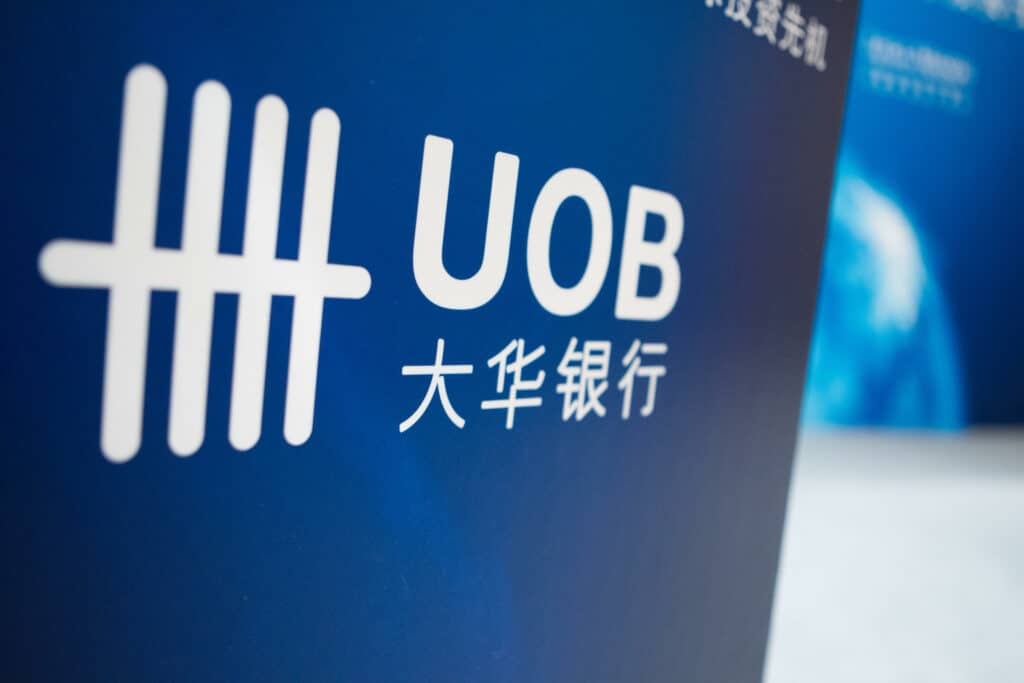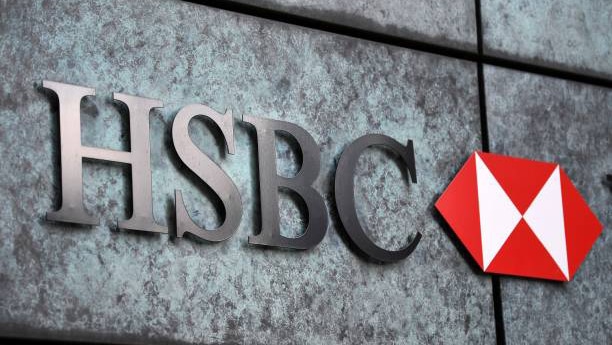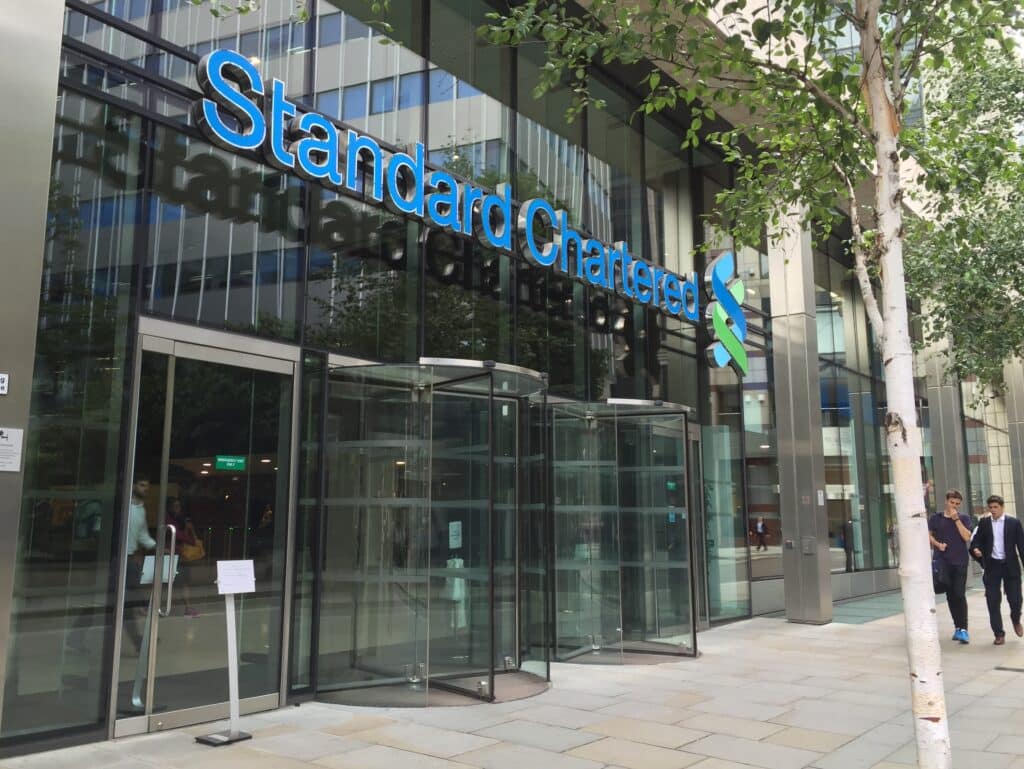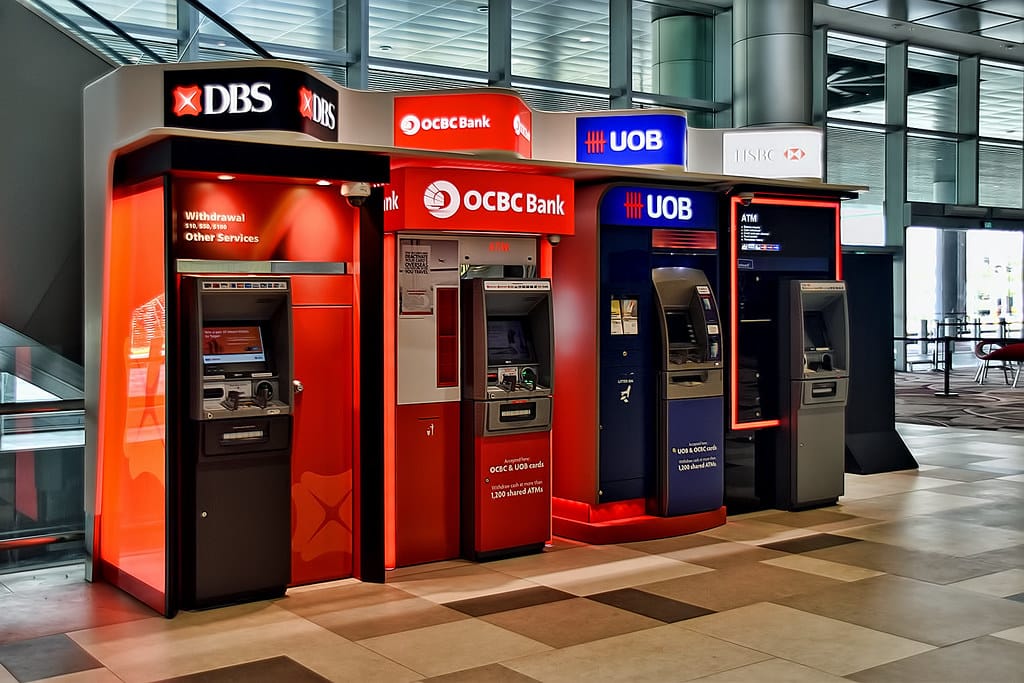What Are The Best Ways Of Sending Money Out Of Singapore To The UK? – that will be the topic of today’s article.
Nothing written here should be considered as financial advice, nor a solicitation to invest.
For any questions, or if you are looking to invest as an expat, you can contact me using this form, or via advice@adamfayed.com
It is usually better to “kill two birds with one stone” and invest as an expat, rather than send money home to buy shares or a house.
Table of Contents
Introduction
Moving from Singapore to the UK can be a daunting one, especially if you’re not familiar with the UK’s immigration system. However, with a little bit of research and planning, the whole process can be relatively straightforward.
One of the first things you’ll need to do is obtain a visa. The type of visa you’ll need will depend on your reason for moving to the UK. If you’re moving for work, you’ll need a work visa. If you’re moving to study, you’ll need a student visa. And if you’re moving for family reasons, you’ll need a family visa.

Once you have your visa, the next step is to apply for a residence permit. This is required for all non-EU citizens who want to stay in the UK for more than six months. The application process can be done online, and you’ll need to provide various documents, such as your passport, proof of your visa, and proof of your address in the UK.
After you’ve obtained your residence permit, the next step is to find a place to live. The best way to do this is to use a rental agent who can help you find a suitable property and negotiate the terms of your lease.
Once you’ve found a place to live, I’m sure you’ll be looking to open a bank account. Afterward, you might want to send some money to your friends or family back home. Today, we have compiled this article to explain the best ways of sending money out of Singapore to the UK. Continue reading to understand better!
Requirements to Send Money Out Of Singapore
If you’re looking to send money out of Singapore, there are a few requirements you’ll need to meet. This section will outline the seven main requirements for sending money out of Singapore.
- You must have a bank account in Singapore
- The recipient of the funds must have a bank account in their country of residence
- You will need to provide identification documents for both yourself and the recipient
- You’ll need to have the correct currency in your account before sending funds
- You’ll need to pay any applicable fees associated with the transfer
- The recipient’s bank may require additional documentation from you
- Some countries have restrictions on how much money can be sent out.
Overview of Pros and Cons of Living in Singapore

Living in Singapore has many benefits, especially for expats. Whether you’re looking for a great job market, amazing infrastructure, or just a great place to raise a family, Singapore has it all. Here are five of the biggest pros of living in Singapore as an expat.
The Standard Of Living Is Very High
Singapore is regularly ranked as one of the best places to live, thanks to its high standard of living. Expats enjoy access to excellent healthcare, world-class education, and a wide range of leisure activities. Moreover, the city-state is incredibly safe, clean, and efficient.
The Weather Is Perfect
Singapore is located just north of the equator, which means it enjoys a tropical climate. This makes it the perfect place to escape the cold winters of Europe or North America. Not only is that, but the humidity levels are also relatively low, making it much more comfortable to live in than other tropical destinations.
Excellent Education System
One of the main reasons families move to Singapore is the excellent education system. The city-state has several world-renowned international and local schools that offer top-quality education. In addition, English is the primary language of instruction, making it easier for expats to adjust.
Good Housing Options
Singapore offers a wide range of housing options for expats, from luxurious apartments downtown to more affordable homes in the suburbs. No matter what your budget is, you should be able to find a place that suits your needs. Also, many apartments come with great amenities such as swimming pools, gyms, and playgrounds.

Low Crime Rate
Singapore is consistently ranked as one of the safest countries in the world. Thanks to its low crime rate, you can feel safe walking around at night or taking public transportation. Moreover, there are few cases of petty crimes such as pickpocketing or bag-snatching.
Cons
Expensive Accommodation

Living in Singapore is high, and accommodation costs are no exception. Expats will find that renting an apartment in Singapore is expensive, with the average price for a one-bedroom apartment in the city center coming in at around S$3,000 per month. Outside of the city center, prices are slightly cheaper but still relatively high.
Cost of Living in General
In addition to expensive accommodation, the cost of living in Singapore, in general, is relatively high. Expats will find that basic items like food and transportation are more expensive than they are used to. In fact, Singapore is often ranked as one of the most expensive cities to live in.
Limited Housing Options
Housing options are also quite limited in Singapore. Expats will find that there are not many apartments or houses available for rent, and those that are available are often small and cramped. This can make finding suitable accommodation a challenge, especially for families.
Lack of Privacy
Singapore is a small country, and as such, there is a lack of privacy. Expats will find that their neighbors are often quite close and that people, in general, are very nosy. This can be a bit of an adjustment for those who are used to more privacy. Besides, it is not uncommon for people to eavesdrop on conversations or even read other people’s mail.

Unexpected Upfront Medical Costs
There are many good hospitals and clinics in Singapore, but the costs of medical treatment can be pretty high. Expats will find that they often have to pay for their medical expenses, as most health insurance plans do not cover them. This can be a shock, especially if you are used to having your medical expenses covered by your employer or health insurance plan.
Top 10 International Banks in Singapore
Before we dive into our list of the top 10 international banks in Singapore, let’s first look at what precisely a global bank is. An international bank is defined as a financial institution that offers banking services to customers worldwide.
These services can include everything from personal banking and loans to commercial banking and investment banking. Now that we have a clear understanding of what an international bank is let’s look at the top 10 global banks in Singapore.
1. DBS Bank

DBS Bank is a leading bank in Singapore that offers a wide range of banking and financial services for individuals and businesses. The bank has over 200 branches in Singapore and over 1,000 ATMs island-wide. DBS also has a strong presence in other countries in the Asia-Pacific region, such as China, Hong Kong, India, Indonesia, and Taiwan.
2. OCBC Bank

OCBC Bank is one of the oldest and largest banks in Singapore, with over 600 branches island-wide. The bank offers a wide range of banking products and services for individuals and businesses. OCBC also has a strong presence in other countries in Southeast Asia, such as Malaysia, Indonesia, and China.
3. United Overseas Bank (UOB)

UOB is one of the three central banks in Singapore, with over 500 branches. The bank offers a wide range of banking products and services for individuals and businesses. UOB also has a strong presence in other countries in Southeast Asia, such as Malaysia, Indonesia, and Thailand.
4. Citibank Singapore Limited

Citibank is one of the leading foreign banks in Singapore, with over 30 branches island-wide. The bank offers a wide range of banking products and services for individuals and businesses. Citibank also has a strong presence in other countries in the Asia-Pacific region, such as China, Hong Kong, India, and Australia.
5. The Bank of Tokyo-Mitsubishi UFJ, Ltd. (BTMU)

The Bank of Tokyo-Mitsubishi UFJ is one of the largest banks in Japan, with over 2,000 branches island-wide. The bank offers a wide range of banking products and services for individuals and businesses. BTMU also has a strong presence in other countries in the Asia-Pacific region, such as China, Hong Kong, Singapore, and Australia.
6. Sumitomo Mitsui Banking Corporation (SMBC)

SMBC is one of the largest banks in Japan, with over 1,800 branches island-wide. The bank offers a wide range of banking products and services for individuals and businesses. SMBC also has a strong presence in other countries in the Asia-Pacific region, such as China, Hong Kong, Singapore, and Australia.
7. HSBC Holdings PLC

HSBC Holdings is a leading British bank with over 6,000 branches worldwide. The bank offers a wide range of banking products and services for individuals and businesses. HSBC also has a strong presence in other countries in the Asia-Pacific region, such as China, Hong Kong, Singapore, and Australia.
8. Barclays Bank PLC

Barclays is a leading British bank with over 4,700 branches worldwide. The bank offers a wide range of banking products and services for individuals and businesses. Barclays also has a strong presence in other countries in the Asia-Pacific region, such as China, Hong Kong, Singapore, and Australia.
9. Standard Chartered Bank

Standard Chartered is a leading British bank with over 1,700 branches worldwide. The bank offers a wide range of banking products and services for individuals and businesses. Standard Chartered also has a strong presence in other countries in the Asia-Pacific region, such as Bahrain, Bangladesh, Brunei, India, Pakistan, Singapore, and Sri Lanka.
10. ANZ Banking Group Limited (ANZ)

ANZ is a leading Australian bank with over 800 branches in Australia and New Zealand. The bank offers a wide range of banking products and services for individuals and businesses. ANZ also has a strong presence in other countries in the Asia-Pacific region, such as China, Hong Kong, Singapore, and India.
Top 7 Ways of Sending Money Out Of Singapore
Sending money out of Singapore can be done in several ways. The most popular method is through banks, which offer various international transfer services. Several money transfer companies provide services for those looking to send money out of Singapore.
1. Skrill

This is one of the most popular ways of sending money out of Singapore. Skrill is an online platform that allows you to transfer funds to anyone in the world, regardless of whether they have a Skrill account or not. The only thing you need is the recipient’s email address. The transaction is instant, and there are no fees involved.
2. PayPal Payment Options
This is probably the most well-known way to send money out of Singapore. PayPal is an online payment platform that allows you to transfer funds to anyone in the world with an email address. The transaction is instant, and there are no fees involved.
3. Instarem
This is a relatively new way of sending money out of Singapore. Instarem is an online platform that allows you to transfer funds to anyone in the world with a bank account. The transaction is instant, and there are no fees involved. Also, you can use Instarem to send money to Singapore from anywhere in the world.
4. Western Union Payment
This is one of the oldest and most well-known ways of sending money out of Singapore. Western Union is a global company that allows you to transfer funds to anyone in the world with a bank account. The transaction is usually instant, but there may be some fees involved.
5. MoneyGram Payment

This is another well-known way of sending money out of Singapore. MoneyGram is a global company that allows you to transfer funds to anyone in the world with a bank account. The transaction is usually instant, but there may be some fees involved. Besides, you can also use MoneyGram to send money to Singapore from anywhere globally.
6. SingX
This is a new way of sending money out of Singapore. SingX is an online platform that allows you to transfer funds to anyone in the world with a bank account. The transaction is instant, and there are no fees involved. Also, you can use SingX to send money to Singapore from anywhere in the world.
7. Payoneer Method
This is another new way of sending money out of Singapore. Payoneer is an online platform that allows you to transfer funds to anyone in the world with a bank account. The transaction is instant, and there are no fees involved. Also, you can use Payoneer to send money to Singapore from anywhere in the world.
Overview of the Best Places to Live in Singapore
It can be tough to decide where to live in Singapore. The island nation is home to over 5 million people, and the options for housing are seemingly endless. However, there are a few factors that you should consider when deciding on your new home. Here are five of the best places to live in Singapore:
Tiong Bahru

This hipster neighborhood is quickly becoming one of the most popular places to live in Singapore. Tiong Bahru is filled with trendy cafes, boutique shops, and art galleries. The area is also home to several parks, making it a great place to raise a family.
Bukit Timah

Bukit Timah is one of the most affluent neighborhoods in Singapore. The area is known for its luxury homes and world-class schools. Bukit Timah is also home to several shopping centers and restaurants. Also, if you love nature, you’ll be happy to know that Bukit Timah is home to Singapore’s largest nature reserve.
Geylang

Geylang is one of the most vibrant neighborhoods in Singapore. The area is known for its food, nightlife, and unique architecture. Geylang is also home to several temples and mosques, making it a culturally diverse place to live. Moreover, Geylang is one of the most affordable places in Singapore.
Holland Village

Holland Village is a popular expat neighborhood. The area is known for its colonial-style homes, tree-lined streets, and quaint cafes. Holland Village is also home to several international schools, making it a great place to raise a family. Also, if you’re a foodie, you’ll be happy to know that Holland Village is home to some of the best restaurants in Singapore.
Orchard Road

Orchard Road is one of the most popular shopping districts in Singapore. The area is home to several high-end stores, malls, and hotels. Orchard Road is also home to a number of embassies, making it a safe and secure place to live. Moreover, if you love the nightlife, you’ll be happy to know that Orchard Road is home to a number of bars and clubs.
Chinatown

Chinatown is one of the most historic neighborhoods in Singapore. The area is home to a number of temples, museums, and marketplaces. Chinatown is also one of the most affordable places to live in Singapore. Moreover, if you’re a foodie, you’ll be happy to know that Chinatown is home to some of the best restaurants in Singapore.
Sentosa

Sentosa is a famous resort island in Singapore. The island is home to a number of luxury hotels, resorts, and golf courses. Sentosa is also home to a number of beaches, making it a great place to relax and soak up the sun. Meanwhile, if you love the nightlife, you’ll be happy to know that Sentosa is home to a number of bars and clubs.
Frequently Asked Questions about Singapore Banking
How do I know if a bank is licensed in Singapore?
Choosing a bank is an important decision. Before you decide, you should check that the bank is licensed by the Monetary Authority of Singapore (MAS). However, not all financial institutions offer the same services. Some of them could be moneylenders or unregulated collective investment schemes.
Can a foreigner open a bank?
Yes, foreigners can open bank accounts in Singapore. However, they may be subject to certain restrictions, such as a requirement to maintain a higher minimum balance. Also, some banks may require foreigners to have a local contact person. Therefore, it is best to check with the bank in advance to determine their requirements.
Do I need a work pass to open a bank account?
No, you do not need a work pass to open a bank account in Singapore. However, you may need other documents such as your passport and proof of address. Other banks can also ask for additional documents, such as your employment pass or student pass.

Are Singapore banks safe for expat?
Yes, Singapore banks are safe for expats. The banking system in Singapore is one of the most stable and well-regulated in the world. Also, all deposits in Singapore banks are protected by the Deposit Insurance Scheme up to S$50,000 per depositor per bank.
Can I use my overseas bank account in Singapore?
Yes, you can use your overseas bank account in Singapore. However, you may be subject to certain restrictions and fees. For example, some banks may only allow you to withdraw a certain amount of money per day. Also, you will need to pay foreign exchange conversion fees when you make withdrawals or payments in foreign currency.
What is the interest rate on my bank deposits?
The interest rate on your bank deposits will depend on the type of account you have and the amount of money you have deposited. For example, savings accounts typically offer lower interest rates than fixed deposit accounts. Also, banks often offer promotional interest rates for a limited period.
How much money can I deposit?
There is no limit on the amount of money you can deposit into your bank account. However, if you deposit more than $10,000 in cash, you will need to make a Cash Transaction Report to the authorities. That being said, most banks will accept deposits of up to $100,000 per day without requiring a Cash Transaction Report.
Conclusion
Sending money out of Singapore can be done in several ways, each with advantages and disadvantages. The most common way to send money out of Singapore is through a bank transfer. Nonetheless, you can refer to this guide to know other options available.
Pained by financial indecision? Want to invest with Adam?

Adam is an internationally recognised author on financial matters, with over 386.2 million answers views on Quora.com and a widely sold book on Amazon.



